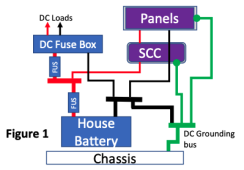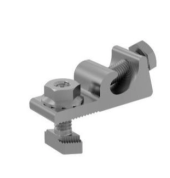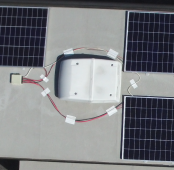chaostactics
New Member
Im a bit confused. I've watched a number of solar installs on RVs on YouTube from the bigger channels (I'm 100% aware it doesn't mean they're correct). And I've never seen them use grounding lugs on the panels.
I have 600 watts of panels going to a victron 100|50 mppt. The mppt is connected to the ground lug on the Victron multiplus, which is connected to a lynx distributor, which has a chassis ground.
The RV is a rubber membrane roof. Do I need to ground the panels?
I have 600 watts of panels going to a victron 100|50 mppt. The mppt is connected to the ground lug on the Victron multiplus, which is connected to a lynx distributor, which has a chassis ground.
The RV is a rubber membrane roof. Do I need to ground the panels?





